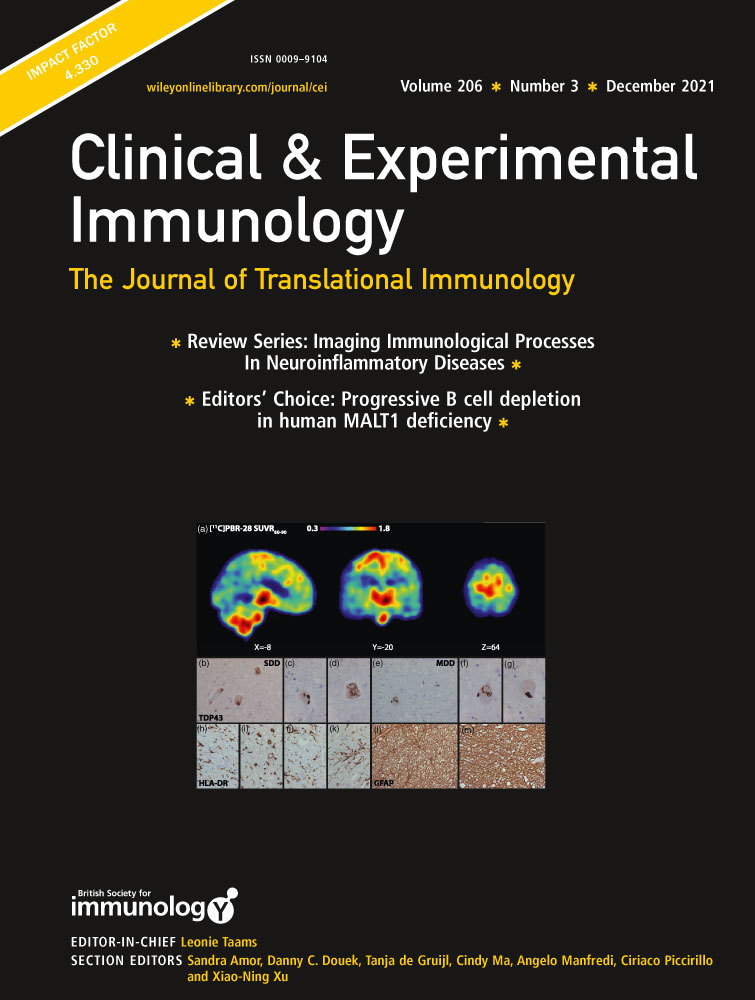Effect of recombinant human erythropoietin on human IgE production in vitro
SUMMARY
Recombinant human erythropoietin enhanced spontaneous IgE production 200–300% enhance ment) in cultures of peripheral blood mononuclear cells (MNC) from atopic patients. In contrast, IgG and IgA production were only slightly enhanced (30–50% enhancement), and IgM production was not affected by erythropoietin. The enhancement of IgE production by erythropoietin was indirect since it required T cells and monocytes. However, erythropoietin effect was specific since enhancement was blocked by anti-erythropoietin antibody but not by control antibody. Interleukin-4 (IL-4) also enhanced spontaneous IgE production from atopic MNC. However, the enhancing effect by erythropoietin is different from that by IL-4, since the erythropoietin effect was not blocked by anti-IL-4 antibody, and conversely IL-4 effect was not blocked by anti-erythropoietin antibody. In contrast to the enhancing effect on atopic MNC, erythropoietin failed to induce IgE production in cultures of MNC from normal donors while IL-4 induced IgE production from normal MNC. However, when normal MNC were pre-incubated with IL-4. erythropoietin enhanced IgE production from IL-4-pre-incubated MNC. Moreover. B cells separated from IL-4-pre-incubated MNC produced IgE which was enhanced by erythropoietin. However, this effect required T cells and monocytes. These results indicate that erythropoietin could regulate ongoing IgE production in vitro by T cell- and monocyte-dependent mechanisms.




